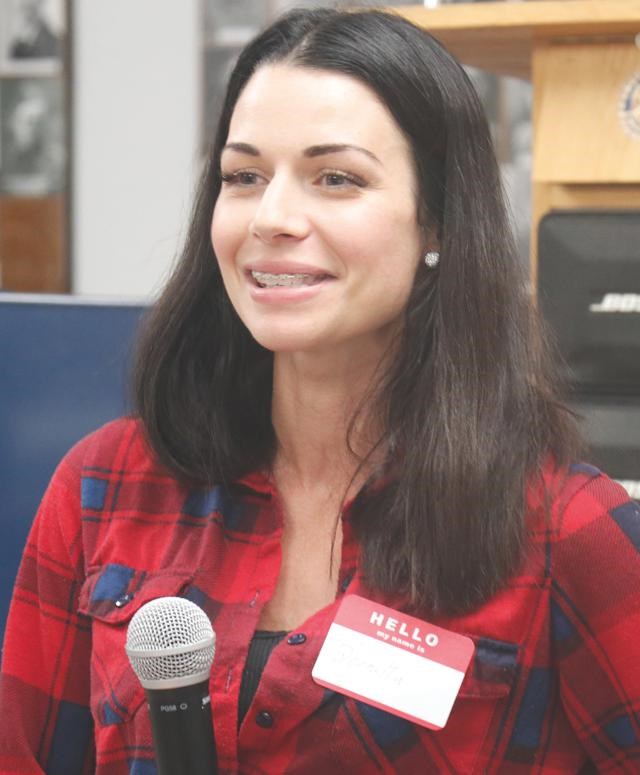A Weyburn woman is promoting new approaches to physical and mental health, after dealing with issues in her own life, Rotary Club members heard in a presentation on Thursday.
Bonnitta Whitrow talked about two different things she is involved with, including being a certified coach in laughter therapy, and offering healthy snack products through her own company, Bee-Raw food products.
A major challenge to her health arose when she was diagnosed with Multiple Sclerosis 11 years ago, and she reached a point where she had some mobility issues.
“I think what’s made the difference is changing my eating and my lifestyle. The way I look at life is I learned to be a lot more positive, and to be grateful for what I do have,” she explained, adding she also exercises regularly and does what she can to be healthy physically and mentally.
She noted about four years ago she began making treats for the Family Place, where she worked as a program coordinator, making snacks that used unprocessed ingredients, such as chocolate with pure cacao, using honey produced in Francis as a sweetener.
She knew she had hit on something good when she launched her first batch of goodies and was sold out in half an hour, so Bonnitta started up a Facebook page to offer her snack products more generally to area residents.
Currently, she has her Bee-Raw products sold at the Prairie Sky Co-op, Pharmasave and the Family Place, and has just added the Stoughton Meat Market, plus a location in Regina, with the hope of getting it into Estevan in the near future.
As she explained, when she was first diagnosed with MS, she started seeking out other people who have the disease in Weyburn, as she wanted to know what they are doing in their lives to deal it.
Bonnitta began to introduce more whole unprocessed foods into her diet, such as fruits and vegetables, rather than processed food products.
Asked if she is eating a more raw food diet, she explained, “I wouldn’t say that. I do eat meat and cooked food, but I have a good mix of fruits and vegetables. In my snacks, I use all dark chocolate, raw cacao that hasn’t been processed yet.”
Bonnitta recently added one employee to help her with the production of her snacks, and hopes this will continue to expand.
As she looked into the disease, there is mounting evidence that the progression of the disease can be slowed down by one’s lifestyle with proper eating and exercise, and noted the health benefits are also true of people who don’t have MS.
One of the fellow MS patients she met was local resident Shelley Van De Sype, and she was able to share a lot of what she’s learned about dealing with MS, along with being in contact with the MS Society office in Regina, which has proved to be a good resource of information and programs.
As part of promoting positive mental health, Bonnitta became a certified coach using laughter therapy about four years while working as an adult programmer at the Family Place.
She has done sessions with larger groups, such as more recently with the students of Queen Elizabeth School, and at a public session during Mental Health Week for the CMHA. She did a demonstration with the Rotary members of how this works, by leading in a few laughter exercises by encouraging people to deliberately and purposefully laugh, rather than as a responsive act to something funny.
“Don’t expect me to be a comedian, because I’m not. Laughter has been called the best medicine. It’s something that is free, and is available all the time. Kids laugh 400 to 600 times a day, and their stress is minimal. I know they don’t have mortgages to pay and so on, but they play and laugh and have fun, and as adults, I think we forget to laugh and to play,” Bonnitta explained.
She pointed out that adults sometimes can only think of one or two times a day when they might have had a good laugh.
The form of laughter therapy she uses is sometimes called laughter yoga, as it involves a lot of deep breathing, which releases toxins in the body.
“If you’re happy and relaxed, you’re taking deep breaths. Some of the benefits are it helps you sleep better, it can help reduce stress and releases endorphins that help relieve pain,” she explained.



